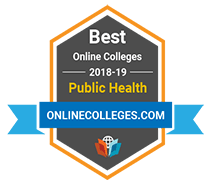Best Colleges for Public Health
We’ve done the research and created comprehensive guides to online schools for public health. Continue below and dive into the details on public health degree programs, tuition and fees, related career outlooks, employable skills and much more.
Jul 29, 2018 | By OnlineColleges Editors
